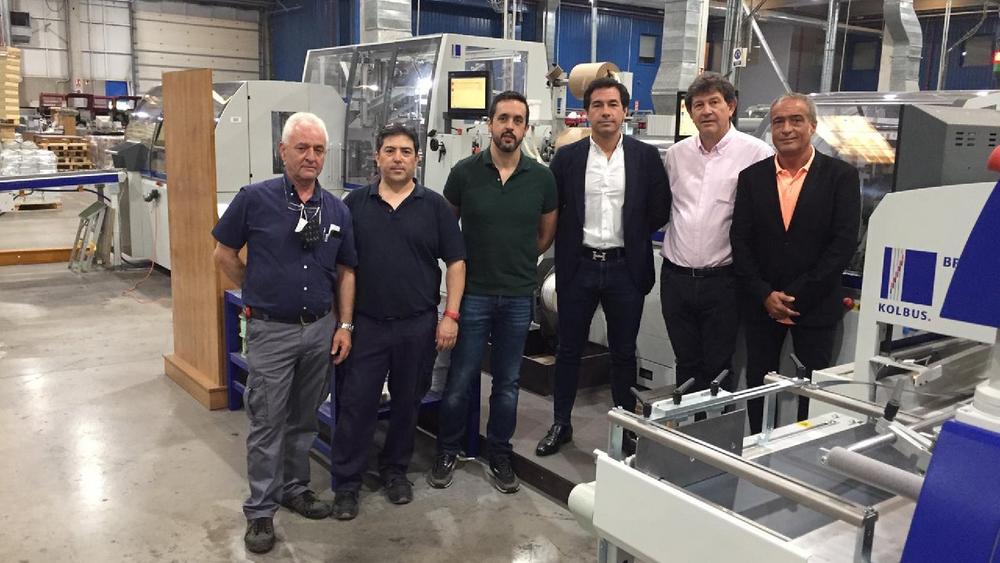As part of its strategic plan to meet the new challenges in the book market, Gómez Aparicio Grupo Gráfico is focusing, in particular, on improved efficiency in book production. “But we’re not simply waiting around for the changes to occur,” says General Manager Luis Francisco Hedo Gómez. “Instead, we’re using technological innovations to approach change in a targeted manner. That’s why we launched the ‘New Digital Printing Processes’ project several years ago, which includes new processes for book production as well. This is the only way we can produce ultra-short runs of hardcover books, too. Doing so is especially important for our company because hardcover books account for 60 percent of our total production.”
Of course, short runs also mean shorter setup times. “And this is one of the major advantages of the BF 513,” says the grandson of the company’s two founders, Francisco Gómez and Luisa Aparicio. That’s why he installed a new bookline connected to an HB 531 infrared heater and a BLSD book stacker from Muller Martini in addition to a Diamant 60, which is used for larger offset orders. “At 1,800 cycles per hour, the production speed of the BF 513 is only half as fast as that of the Diamant 60, but the key factor for us are the short make-ready times,” says the owner of the company, which was founded in 1958 and employs 107 people, 50 of them in bookbinding.
By comparison, in the hardcover segment the average print run per job in digital printing is 410 copies, but in offset printing it is 3,200 copies. Previously, the lowest print run on the BF 513, which was put into operation last February, was 100 copies, while the highest print run on the Diamant 60 last year was 125,000 copies.
Each year, Gómez Aparicio Grupo Gráfico produces more than 15 million books. In the hardcover segment, it covers a broad range of art books, comics, novels, manuals and diaries. And in softcover production – just like in saddle stitching and thread sewing – the successful family company relies on a solution from Muller Martini as well, an Alegro. The perfect binder, equipped with an endsheet feeder and a mull feeder, which was acquired two years ago as the successor to an Acoro A7 that was put into operation in 2005, is also used to produce book blocks for the BF 513 and the Diamant 60.
“We have viewed Muller Martini as a reliable partner for many years, and they have never disappointed – quite the contrary, Muller Martini has always provided us with optimal support and assistance for all of our projects,” says Luis Francisco Hedo Gómez.
Müller Martini AG
Untere Brühlstrasse 13
CH4800 Zofingen
Telefon: +41 (62) 7454545
Telefax: +41 (62) 7514737
http://www.mullermartini.com/
![]()

